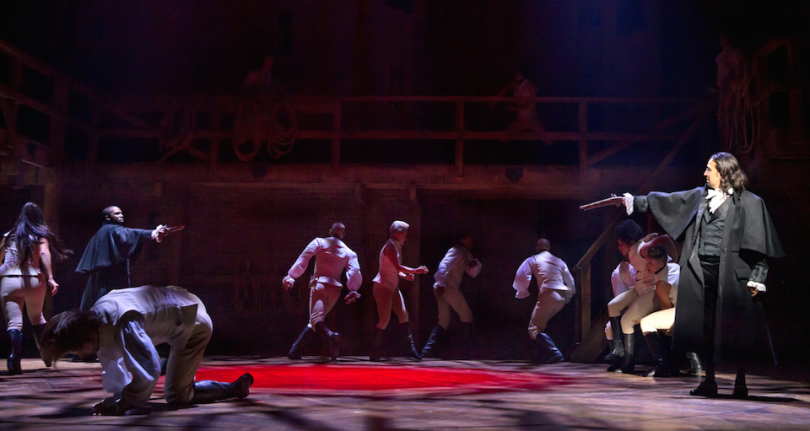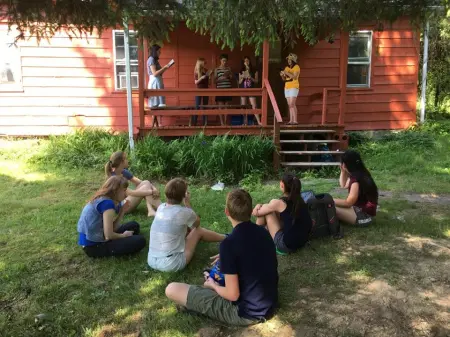Today marks my seventh post in Concerning Stories. I’ve talked about my random tidbits of insight into reading and writing, shared advice I’m sure people didn’t want to know, and told stories I’m completely positive people didn’t want to know. But I shared them anyway and I enjoyed doing it. I appreciate you “listening”. Unfortunately, today also marks my final post. Here, a few choice pieces of opera come to mind, farewell pieces I might serenade you with. OR, perhaps Dvorak’s Going Home. But I’ll resist the temptation, don’t worry. 😉 I was struggling what to use as a writing topic for my final piece, as I’ve been struggling to do for a while now, and finally, I decided to do a quick ramble, keeping with tradition.
My best friend—who also happens to be my cousin—and I have been close since we were little kids. “Close” doesn’t necessarily mean we liked each other (hint: we didn’t), but we were constantly around each other and the mutual dislike slowly changed. 🙂 Her mom died when we were six, unexpectedly and quite suddenly. The family didn’t talk about her death—still don’t—but instead, we opted to bury the memories away somewhere and try to move on with our lives. For me, it was difficult but possible. For my best friend, it was practically impossible and for quite a few of her early teenage years, she especially struggled. *Note: this won’t be some epic sob story, so please continue. Deaths are really no longer mentioned from here on out, I believe.* Fast forwarding quite a few years, my dad very suddenly was diagnosed with stage four cancer. He nearly died himself a time or three. It was, by far, the worst experience of my life. Seeing someone you love in the MICU without a single clue of what was going to happen can be completely traumatic. My best friend pulled me aside a few months into chemo round #1 and handed me an old book, tattered around the edges and frayed with sticky notes. I took a look at the inside cover, curious as to what it could be. It was Oliver Wilde’s The Importance of Being Earnest. –Note: an apology to some of my fellow bloggers who may have heard this story before— “It’s funny,” she said with a shrug. “It makes me laugh when I can’t stop thinking about her.”
I tried it. I read it, drove to the nearest Barnes and Nobles, and bought myself a copy to reread that same day. The book sits on my shelf now, looking tired and well-loved, with a really wrinkly cover and a few pages crumpled from where I’ve highlighted my favorite sections. It made me laugh. It still does. And that, my dear reader, is the very power of literature.
I know that my fellow bloggers talk often about their faith. I don’t, as a habit. I come from an unusual family dynamic and talking about Bibles and Jesus and Christianity as a whole on a regular basis isn’t something I’m often very comfortable doing. But imagine, if you are religious, your devotion to the Bible: it’s just a book, some might argue. Just words printed on a page, telling a story. It can be puzzling to some how there exist people who would willingly die for that book, for those stories and words and messages. One might say it is the power of those words that can first touch the life of the reader.
Now, don’t misinterpret me. I’m not suggesting that the Bible and Wilde’s plays should be compared in such a way. I simply marvel at the power of words…of literature, of books, of stories. That’s what our blog is called, isn’t it? Concerning stories…sometimes we get caught up in the ‘how-to’ blogs and the rants about plays and Shakespeare because we can never seem to stop talking about him and all this reading and writing advice. But here’s a quick thought: just because some dude wrote a play doesn’t mean the whole world has to love it. They don’t even have to appreciate it. Because the point is, for some people, his stories touched them. His stories had an impact on their life, allowing them a chance to live and experience life differently. For me, it was Wilde. Wilde, who can capture humanity in a way I’ve never before seen on the page, who can create the most astonishing scenes displaying complex human emotions and relationships using a train station and an old leather purse. It was that story that made the next two years of my life not-quite-so crappy.
I’m getting ready to go to college now. Nursing is in my future, it would seem, after spending far too many days in a chemotherapy office or a hospital waiting room or the MICU. When I first met with my advisor to go over my schedule, I made sure a literature class was added in. She gave me a strange look. ‘What? A nursing student with a passion for literature?’ It didn’t seem quite right to her and my excitement for the class made her laugh. When I pointed out that an in-depth analysis of Wilde’s plays was a large part of the schedule, she laughed even more. “I love Oscar Wilde,” she said. “When I got a divorce, I read all his plays—he makes me laugh.”
Point made.
A very great, very remarkable man once said that “to live is the rarest thing in the world. Most people exist, that is all.” May you discover that literature allows you the chance to live, not just exist…just as I also discovered not so long ago.
Best of luck in your literary escapades,
-Emma


















